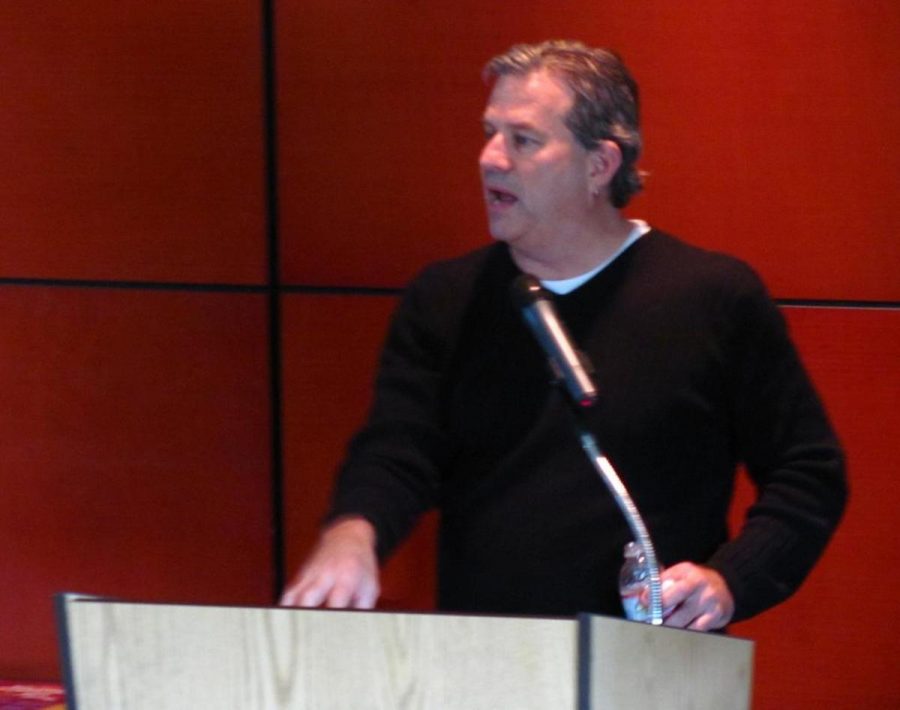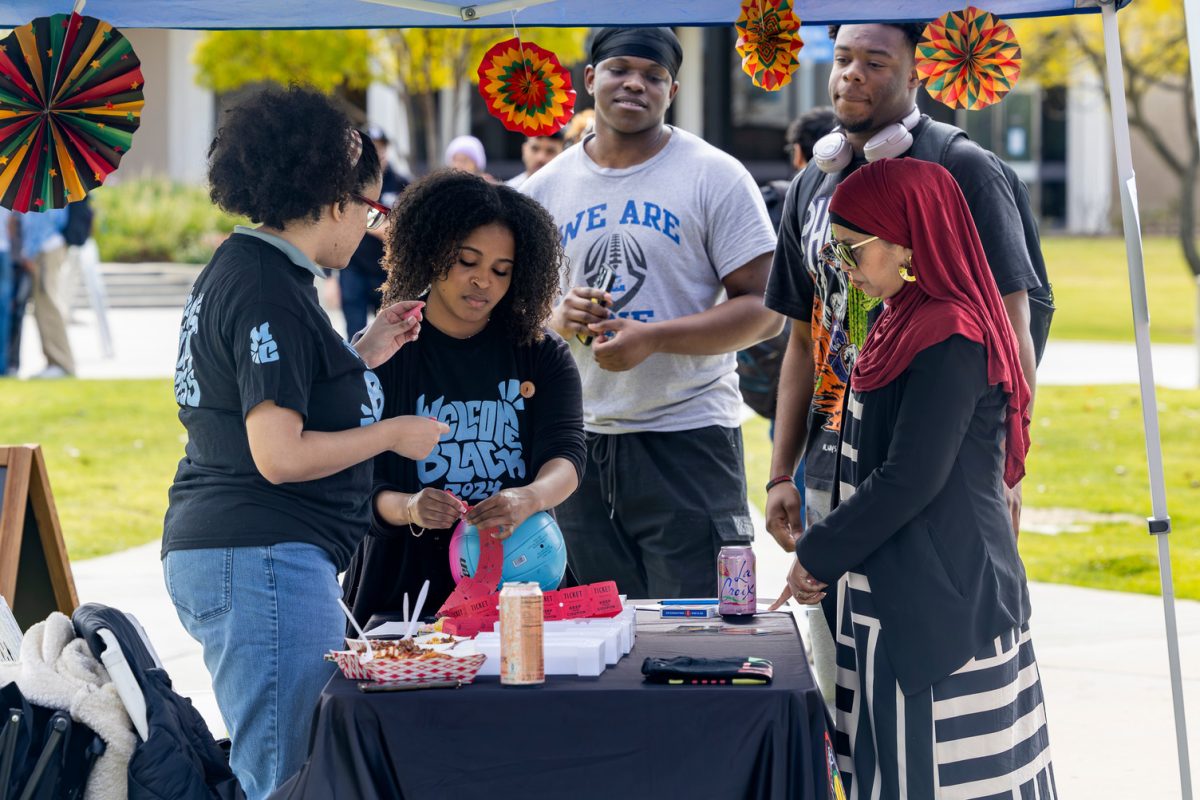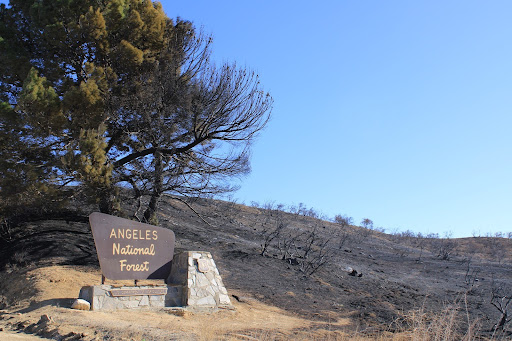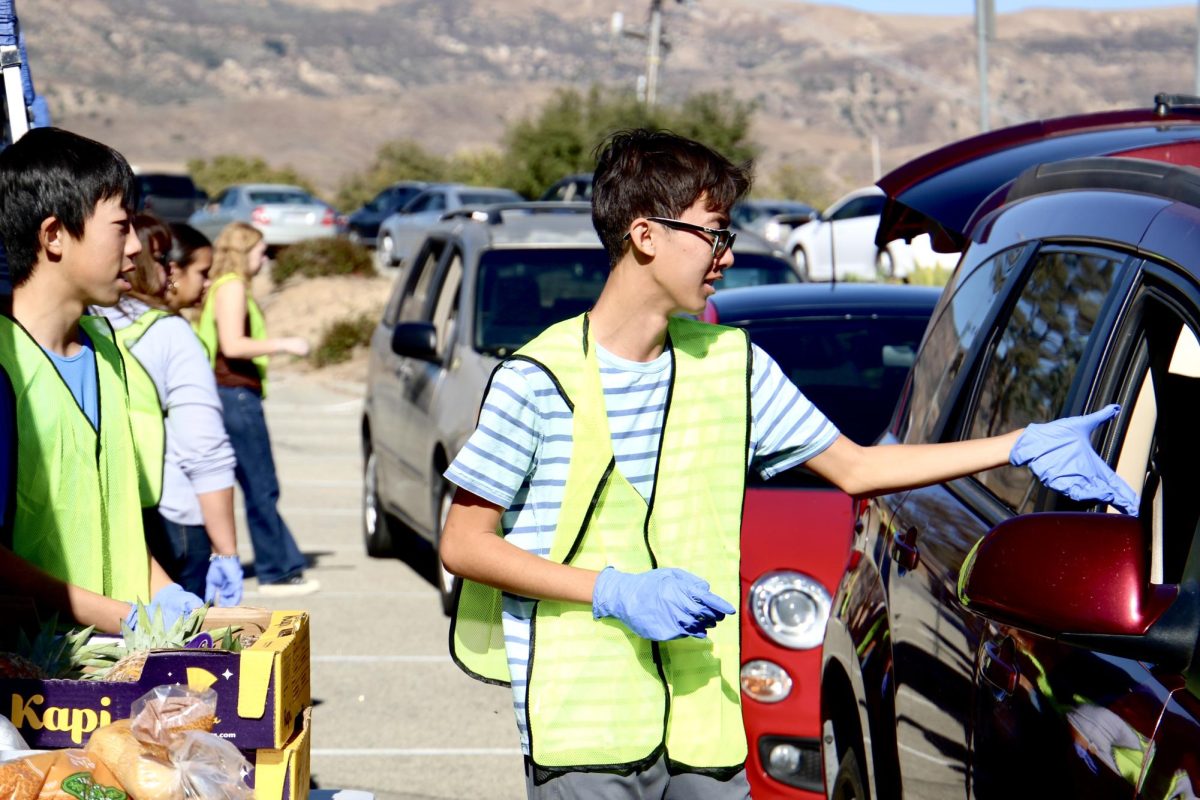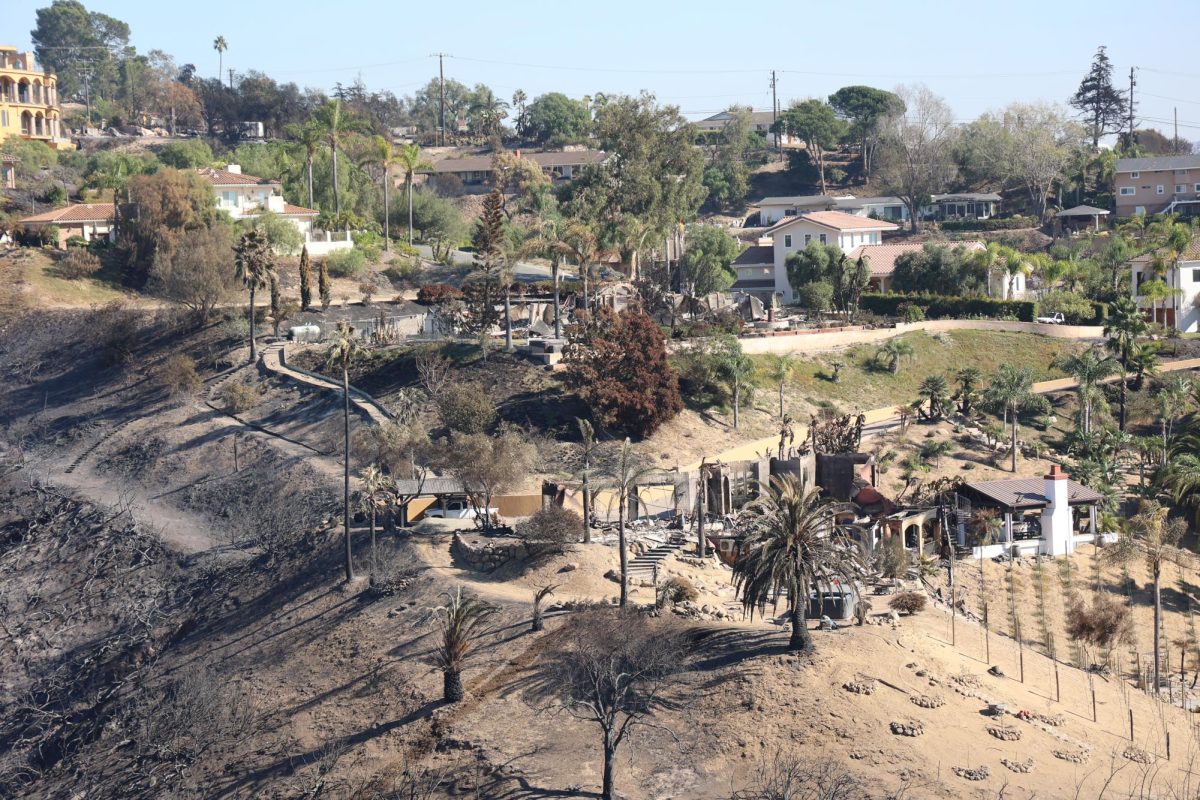Bridging the gap between the world of immigrants and the world of journalism stands a man who ventures into the deep cultures of Mexico in hopes of telling a story.
Author and journalist Sam Quinones was invited to Oxnard College to share his anecdotes about his 10-year stay in Mexico and the development of his two acclaimed non-fiction books titled “Antonio’s Gun and Delfino’s Dream: Truer Tales of Mexican Migration” and “True Tales from Another Mexico.”
“It was a time of great growth as a writer, because I had a lot of raw material,” said Quinones. “The stories there were fantastic. I was almost addicted to them, that’s why I stayed so long.
The lecture was part of the Oxnard College Literature, Arts and Lecture Series that was held on Nov. 17, which was titled, “Chalino & Delfino: True Tales of Mexican Immigrants’ Escape from Mexico City.” The lecture elucidated a detailed narrative of his adventures alongside the natives of Mexico, as well as his horrific encounters with lynch mobs and poverty.
“People who leave Mexico are not terribly educated, not really polished, but they have the essential ingredient that every country needs,” said Quinones. “And it’s energy. That desire to walk through a wall to get what you want.”
Quinones is currently a staff writer for the Los Angeles Times. He grew up in Claremont, CA. and later relocated to Stockton. He then traveled North to Seattle, where he was very dissatisfied with his environment. He soon made the decision to move down to Mexico in 1994, where he boarded in a small village with a communist Mexican family who were deeply anti-American.
Once in the village, Quinones soon began to think about immigration issues on a deeper basis.
Quinones tells the story of Delfino, a boy whom he met in Mexico City, after leaving his hometown to help his mother and younger brother financially. This young boy arrived in one of the biggest cities in the world in awe of his surroundings.
“To be taken seriously as a man [the rite of passage], they had to go to Mexico City and experience life as they knew it,” said Quinones.
Many young boys like Delfino worked in hard-labor workforces in order to provide for their families back home and often times did not have a place to stay in. Many of the laborers were homeless, but some managed to find a temporary place to sleep along the way.
“Mexico sustains itself and relies on the labor from the surrounding states,” said Quinones. “These laborers are children….boys that work in construction sites, shower there, sleep there then move to another site once that one is finished.”
Kitty Merrill, TV/Film production professor, felt the lecture was important for students to hear at the lecture series.
“I thought this was a very fabulous way of letting people understand how important journalism is to tell stories,” said Merrill. “By talking about people from Mexico and their experiences, bringing that here to the audience, enriches and expands their understanding of society.
Dr. James Harber, microbiology, cell biology, and biotechnology professor, is a childhood friend of Quinones, and it was he that suggested his visit to OC.
“He did something beyond what was a normal career strategy, which was to really take himself out of what was a safe, tried and true road in America. And do the reverse.”
Harber reiterates that there is a lot we can learn about our own community here in Oxnard, through the stories that are being told through the eyes that appreciate these types of cross-cultural experiences.
The audience was extremely receptive to Quinones’ story-telling methods. They sympathized with his difficult experiences and laughed at his comic ones.
Quinones was able to learn Spanish within a year and do some freelance journalism while living in Mexico. Later, he introduced himself to many cohorts in order to culturally experience everything and everyone he could, first-hand.
Jesse Hernandez, a 21-year-old nursing major, related to Quinones’ experiences with the many families in Mexico.
“I was very fascinated when he was telling the story about the life of the young boy, Delfino Juarez,” said Hernandez. “It inspired me because I’m the first in my family to go to college.”
Shelley Savren, English professor and coordinator for this event, was excited about hosting this author for the students to enjoy.
“I think it was very educational for our students because he went to places where a lot of them are from or their parents are from,” said Savren. “He lived among the people very respectfully and got their stories and then brought them back and wrote about them. I think he honored them in that way.”

